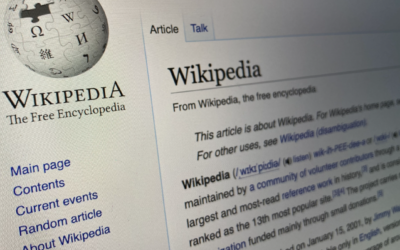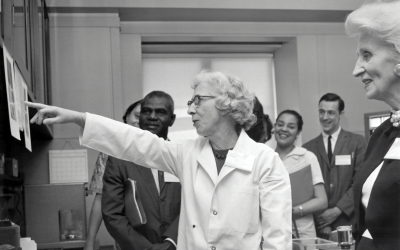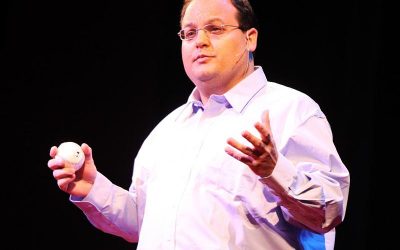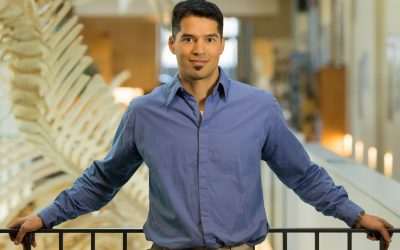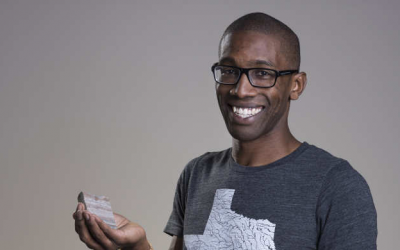Impact
Societal challenges like migration movements, climate change, or digitization show that there is a pressing need for informed expertise from virtually all fields of research. Yet, scientific knowledge often remains within its domain and reaches civil society only indirectly and delayed. In a 5-year citation window, 27% of the papers from natural sciences and 32% of the papers from social sciences remain uncited.
Expressed pointedly: While the need for scientific expertise is perhaps greater than ever, scientists produce papers that nobody reads. Moreover, neologisms like “alternative facts” suggest a noticeable loss of the scientific authority in the public opinion. All this raises a difficult question: What is the impact of science? In the next couple of weeks we will address this issue in more detail.
What is your take on Impact? We welcome contributions on this topic.
How good science communication can support researchers in cases of hostility
Threats and attacks on researchers can lead them to self-isolate and retreat from public communication. We look at strategies to prevent this from happening.
How will Artificial Intelligence (AI) influence openness and collaboration in science?
Beck, Poetz & Sauermann on using AI tools when developing novel research ideas as input for writing grant proposals during an experiment at the OIS Research Conference 2022.
Scientific policy advice: An attempt to structurize types of organizations on the international level
In this contribution, Irene Broer & Nataliia Sokolovska describe what inspired them to create their own taxonomy of advisory formats and dive into the characteristics of advisory organizations and how they can be systematized.
Opportunities and Limitations of Evidence-Based Policy Advice for Evidence-Based Policy-Making
Holger Bähr on the strengths and pitfalls of evidence-based policy advice in policy-making precesses
Out of the Box: Extended Peer Review as Quality Assurance in Scientific Policy Advice
This short analysis is showing up ways of how the quality of scientific policy advice, as an important part of the recognition of scientific activity, can be checked and how these processes and results can be made usable again for science.
Trust at the interface of environmental research and policy
Karcher and Shellock on trust at the science-policy interface, how can you build trust when working with decision-makers and what can you do when it has been compromised or lost.
Impact of social sciences – (How) Can it be measured?
A summary of the results of a workshop held by our authors on issues related to the measurability of the impact of the Social Sciences and Humanities.
Wikipedia as Science Communication: A Step-by-Step Guide
The Wikipedia community has become a source of information for a broad and global public. Paul and Max argue that contributing to the encyclopedia as a scholar can be a powerful way of achieving a strong societal impact of their own expertise. Furthermore they provide a guide on how to write your first contributions.
The Return to Science at The Turn of Modernity
Jayat Joshi on the role of science as a guiding principle of political and societal action in extraordinary situations like the COVID-19 pandemic
How science communication can challenge conspiracy theories in times of Covid-19
Mike Schäfer & Jing Zeng on the particularities of conspiracy theories on COVID-19, how to face them, and what role science communicators play while doing so.
Communicating Science in Covid Times
Stefanie Molthagen-Schnöring on science communication in times of a global pandemic and why communication with “the public” shouldn ´ t be its goal
The impact of bioenergy research
Glaucia Souza on the introduction of BioFuels in Sao Paulo and all over Brazil, her activities at BIOEN and the transfer of technologies for more sustainable forms of mobility into practice.
Embracing complexity: COVID-19 is a case for academic collaboration and co-creation
As serious as the COVID-19 pandemic is, it could be an opportunity for science, says our editor Benedikt Fecher.
Responsible Innovation: Universities and public research institutes have to be radically adapted
René von Schomberg on Responsible Innovation and its dimension of societal impact.
What’s the Value of Social Science?
Prof. Lupia on the value of social science, its responsibilities, potentials and application.
The four faces of Twitter user’s activity around science.
Adrián A. Díaz-Faes analyses four dimensions of twitter metrics around science in a quantitative study.
Meet the Research Impact Canvas
Fecher and Kobsda introduce the Research Impact Canvas – a structured guide to plan science communication activities.
How can we establish sustainable Open Innovation?
Marion Poetz on what it takes to foster innovation in Science and how to make it more interesting for companies and organizations.
Active but not Activists: Research communication by Scientists for Future
Gregor Hagedorn, the initiator of Science for Future, explains how Scientists for Future uses a pro-active form of science communication to draw attention to global challenges.
Helping Scientists: Increasing visibility and impact of research
How to support scientists in increasing the visibility and impact of their research? Tamika Heiden shows insights from her work.
How to ensure sustainable support for high-quality research?
Doing research and getting paid for it is fantastic, but how to do that sustainably? Kalle Korhonen tells you how to maintain the interest of research funders.
Scientists should place themselves among the society
Search for the truth, but also provide contributions to problem-solving and make reliable predictions.
What is the impact of retractions in science?
What should a scientist do if he or she realized that there is an error in research? What kind of implications can this have on their future career?
Impacting the ‘real world’: out of sight for science?
The conflict for scientists and research evaluation between scientific impact and tackling societal challenges.
The balance between bibliometric and societal impact
An interview with Kai Chan and his strategies to seek the combination of both kinds of impacts.
Overselling results is a problem in science
“Scientists who oversell their results are a big problem for science.”
Decentralizing Science
The case for decentralized, trusted platforms for the dissemination of scientific information and attribution.
The reason to do science
Christopher Aiden-Lee Jackson researches the Earth’s structure. In his opinion, scientists have to care more about informing their findings to policymakers.
How we overestimate Twitter
Twitter is a centerpiece of modern public communication. But the question must be asked: Is Twitter worth all that attention?
Revolution in science
Open Science advocate Shakib Wassey tells how a digital platform for open scientific publication and interactive evaluation could change scientific publishing.








